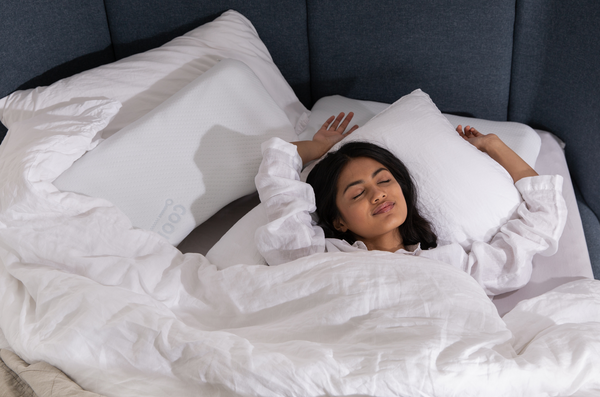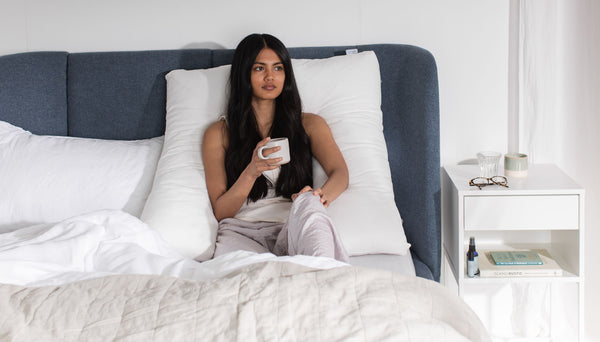
Master the Art of Sleeping Well: 6 Essential Tips
A good night’s sleep for many of us is something we just don’t think about, it’s like breathing in and breathing out. However, if you do have trouble sleeping it can affect all aspects of your life and your health. It is thought that most people require on average 7-8 hours of sleep a night.
Whilst many of us have the odd night we don’t sleep well by and large this is the exception rather than the rule. Night after night of sleeplessness is a reality for around 16 million adults in the UK. 
Poor sleep problems can creep up on you and before you know it you are struggling along on 2-3 hours per night. Whilst this may be ok for some, for most this will have a detrimental effect on your long term health and well being.
It is important to realise that sleep is not a luxury and that it is key to both your physical well being and your mental well being. If you suffer from sleep apnoea or insomnia this can quickly impact other aspects of your health such as High Blood Pressure, Type 2 Diabetes and heart conditions.
A good night’s sleep can be as important for your mental health as it is for your physical health.
Check out our Top 6 Sleep Tips
- Keep regular sleep hours. Get into a bedtime routine and stick to it you will be surprised what a fundamental difference this can make.
- Create a calm and restful sleeping environment. Pay attention to temperature, comfort, lighting and noise particularly.
- Start a light exercise regime and stick to it. Be sure not to exercise too close to bedtime as often the adrenaline and other hormones can keep you awake. Get Active Your Way with the NHS is a great place to start.
- Be careful about what you eat and drink. Drinking alcohol and caffeinated drinks can have a dramatic effect on the quality of your sleep, so it’s best to steer clear. Some people think that a nightcap can help them rest particularly after a long stressful day at work. However, both caffeine and alcohol can have a negative impact on your sleep patterns and in truth, it is more likely to prevent sleep patterns from getting established than produce a restful slumber.
- Look to implement a wind-down routine as part of our sleep hygiene. This may involve relaxing music, gentle yoga, essential oils or simply switching off our mobile phones’ half an hour before bedtime. Remove the stimulus that keeps your brain active and look to eliminate all possible distractions.
- Are you a worrier? Do you find you spend hours mulling over the events of the day? Or the schedule for the next day in your mind going over and over scenarios again and again? If so perhaps try writing notes on the day in a diary which will help you compartmentalise them so you feel you’ve dealt with them before you go to bed. Also writing lists for the next day can prove effective as you feel you have a plan on how you are going to tackle the challenges that the next day might bring. Both practices help you to ‘empty’ your mind before you go to bed this will help you relax and feel in control.
Six foods and drinks to avoid for a good night’s sleep
In order to give yourself the best chance in getting a good night’s sleep, it is important to realise wheat can affect the process. As no matter how good your bedtime routine is, if your diet is problematic you will be tossing a turning all night long.
- Alcohol – yes we thought we would get this one out of the way first. We’ve all used alcohol to unwind. It is true that you become sleepy after a few drinks. However, alcohol can cause disturbed sleep and impair the all-important REM sleep.
- Avoid caffeine. Now we all know we should avoid caffeine late in the day. However, that isn't just tea and coffee. Be vigilant about food and drinks that contain hidden caffeine. It could be those few squares of chocolate on the sofa are causing undermining your healthy regime. As a rule, it’s best to avoid all chocolate and coffee flavoured food and drinks at least 3 hours before bedtime.
- High sugar content. Obviously high sugar content can cause your blood sugars to spike which has a knock-on effect on your sleep patterns. Avoid all high sugary foods particularly cereals late at night.
- Foods with high water content. Normally these foods are good for you, particularly during the day. However, at night they can trigger unwanted bathroom visits.
- Avoid foods high in saturated fats as these can take longer for your body to break down.
- Chilli and hot peppers. If you like your meals to have a kick try not to have them close to your bedtime. These spices and chillis can cause your body temperature to rise thus causing problematic sleeping rhythms.
Above all ensure you have a regular mealtime pattern which will ensure healthy sleep standards.
A good night’s sleep guaranteed with just one or two changes
When you think about it, getting a good night’s sleep is probably the best thing that we can do for our health. And yet so many of us struggle to get enough rest each and every day.
Sleep patterns can be very difficult to change.
As for many of us, they are subconscious habits we have had since childhood. However, pinpointing the easy changes you can make overnight, can change your sleep outlook considerably. It's important to discover what works for you try different methods like the 10,3,2,1,0 method that might help you achieve that peaceful night's sleep that you deserve.
However, it is important to be reasonable about your expectations. So come up with a plan and be patient. It is unreasonable to change everything overnight and expect your body and mind to alter at the drop of a hat.
The process may be gradual and slow at first but improvements will be noticeable in just a few weeks. Like anything worth doing it takes time to get it right.
At the very least we hope these will provide a little bit more peace of mind come bedtime tonight. Good luck!
Don't forget to leave your top sleep hacks in the comments section below. We would love to hear from you.

















Leave a comment